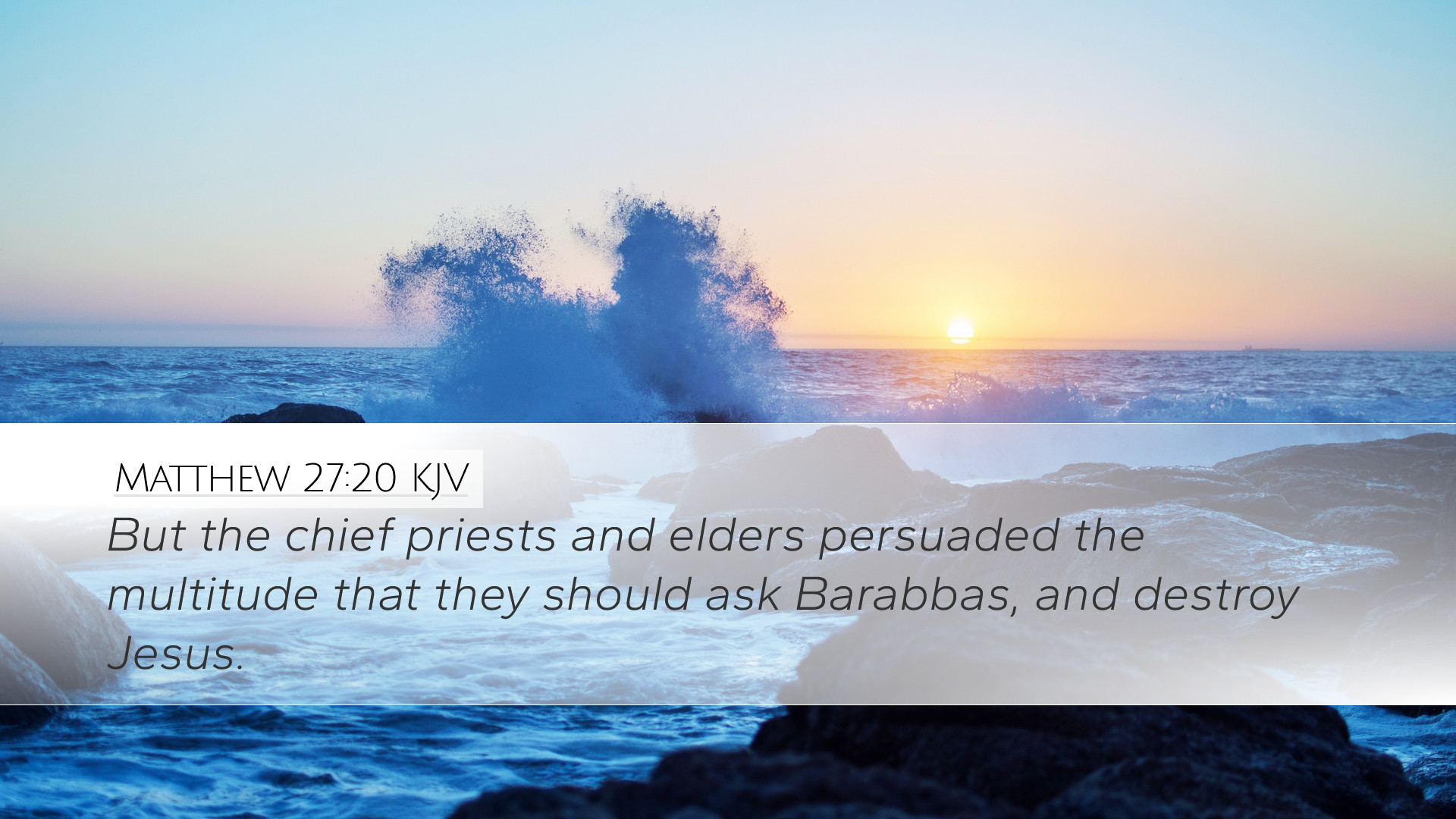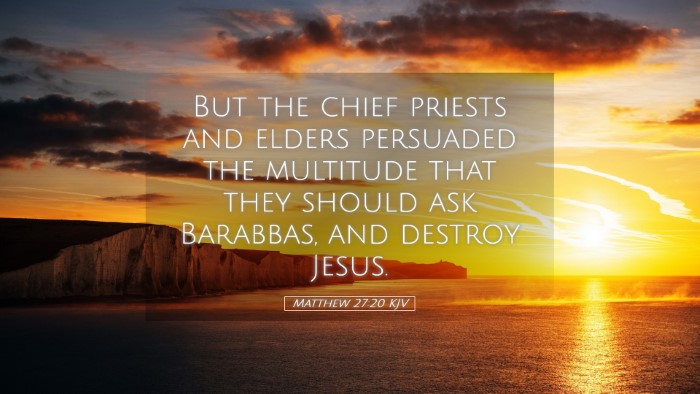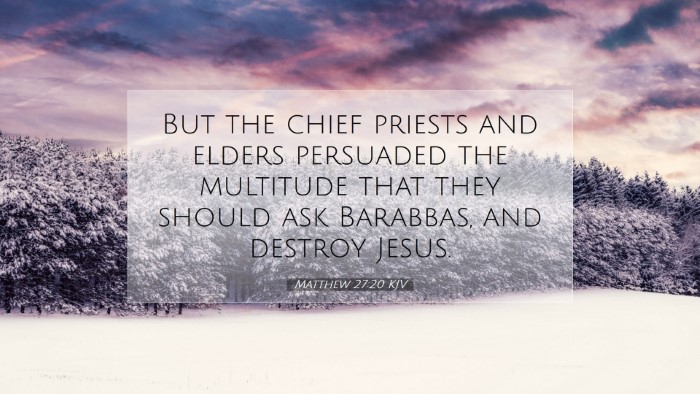Commentary on Matthew 27:20
Verse Context: Matthew 27:20 states, "But the chief priests and elders persuaded the multitudes that they should ask for Barabbas and destroy Jesus." This pivotal moment of Jesus' trial exemplifies the intense conflict between the religious leadership and Jesus, as well as the fickle nature of public opinion.
Historical Background
This verse occurs during the Passover festival, a time when it was customary for the Roman governor to release a prisoner chosen by the people (Mark 15:6). The choice between Barabbas, a notorious criminal, and Jesus, the innocent Son of God, illustrates the moral and spiritual dilemmas facing the populace.
Commentary Insights
Persuasion of the Multitude
Matthew Henry emphasizes the role of the chief priests and elders in influencing the crowd. He notes that they used their power to sway public opinion against Jesus. Henry points out that this manipulation showcases the cunning and malice of the religious leaders who feared losing their authority and were desperate to eliminate any threat posed by Jesus.
Albert Barnes comments on the term "persuaded," which indicates a calculated strategy by the leaders. Barnes highlights the fact that the religious leaders utilized their influence to instigate a riotous mob mentality, which often leads people to reject truth in favor of popular opinion.
Public Sentiment and Choice
Adam Clarke notes the irony in the people's choice. He discusses how the same multitude that celebrated Jesus' triumphal entry into Jerusalem just a few days prior is now persuaded to demand His crucifixion. Clarke suggests that this transformation exemplifies human nature's susceptibility to change, especially under pressure.
The Character of Barabbas
Matthew Henry describes Barabbas as a "notorious prisoner," a figure representing rebellion and violence. Henry posits that the choice of Barabbas over Jesus symbolizes the people's preference for insurrection over redemption. This act can be seen as a rejection of peace for turmoil.
Barnes further illuminates how Barabbas’s release contrasts with Jesus’s fate. He implies that Barabbas embodies the very sin and rebellion that Jesus came to save humanity from, thus the crowd’s choice is an emblem of spiritual blindness.
Theological Implications
This moment in Matthew 27:20 is laden with profound theological implications. Henry reflects on the deceitfulness of sin, showing how the leaders’ manipulation leads to an outright rejection of God’s plan of salvation through Christ. It serves as a reminder that many will choose their own way over divine truth.
Clarke contributes to this discussion by suggesting that the crowd's rejection of Jesus reveals a deep-seated misunderstanding of God’s messiahship. Instead of recognizing Jesus as the fulfillment of the prophecies, they embrace a criminal, representing worldly power and rebellion.
Lessons for Today
- The Nature of Leadership: The behavior of the religious authorities cautions us about the influence of leaders in guiding public opinion. It encourages pastoral reflection on how spiritual leaders should act with integrity and truth.
- Public Opinion: This account serves as a warning about the volatility of public sentiment. It challenges contemporary believers to remain steadfast in faith, even when popular culture sways in an opposing direction.
- Choosing Christ: The choice between Barabbas and Jesus epitomizes the ongoing choice each person must make regarding Christ. It invites deeper contemplation on what or who is being preferred in one’s own life.
- Divine Sovereignty: Despite human choices leading to the crucifixion of Christ, this event fulfills God’s redemptive plan. It illustrates the sovereignty of God over human decisions, offering hope that, even in darkness, light can prevail.
Conclusion
Matthew 27:20 serves as a sobering reflection on the human condition, the complexities of leadership, and the eternal implications of our choices. The insights from Henry, Barnes, and Clarke collectively encourage a deeper engagement with the text, urging believers to reflect on the nature of their faith amid societal pressures. This moment in the Passion narrative challenges us to pursue truth amidst deception and to seek the Way, Truth, and Life found only in Jesus Christ.


